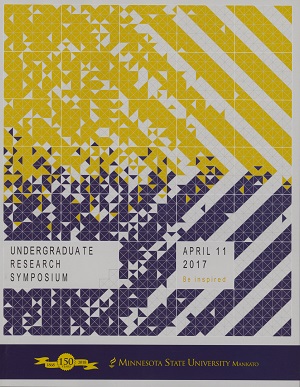Spaced and Expanded Practice: A Comparison of Methods to Enhance Retention
Location
CSU Ballroom
Start Date
11-4-2017 2:00 PM
End Date
11-4-2017 3:30 PM
Student's Major
Psychology
Student's College
Social and Behavioral Sciences
Mentor's Name
Shawna Petersen-Brown
Mentor's Department
Psychology
Mentor's College
Social and Behavioral Sciences
Second Mentor's Name
Carlos Panahon
Second Mentor's Department
Psychology
Second Mentor's College
Social and Behavioral Sciences
Third Mentor's Name
Jannine Ray, Carrington Risss, and Ashlee Lundberg
Third Mentor's Deparment
Psychology
Third Mentor's College
Social and Behavioral Sciences
Description
In order to promote quality instruction and maximized student learning, it is essential for schools to integrate the most practical, effective, and efficient teaching methods into the curriculum. The purpose of this research is to investigate the effect of varying spacing patterns between practice sessions on retention of information. This study will investigate the effects of practice at consistent intervals (spaced practice) and practice at increasing intervals (expanded practice). Though the research is limited, it has suggested that expanded practice may be more effective than spaced practice, particularly in a K-12 school setting. Third graders will be taught a set of unknown words and definitions using incremental rehearsal (IR). Seven terms will be selected within a content area agreed upon by teachers and researchers and taught through the IR intervention. After the teaching session, students will participate in three practice opportunities corresponding to their assigned condition. During practice opportunities, students will be presented with the words from the teaching session and asked to read each one and provide the definition. If the student reads and/or defines a word incorrectly, error correction will be used. The primary dependent variable will be retention of words and definitions in the final practice opportunity at 28 days after teaching. Data will then be analyzed using an independent samples t-test. Data is currently in progress of being collected within the schools.
Spaced and Expanded Practice: A Comparison of Methods to Enhance Retention
CSU Ballroom
In order to promote quality instruction and maximized student learning, it is essential for schools to integrate the most practical, effective, and efficient teaching methods into the curriculum. The purpose of this research is to investigate the effect of varying spacing patterns between practice sessions on retention of information. This study will investigate the effects of practice at consistent intervals (spaced practice) and practice at increasing intervals (expanded practice). Though the research is limited, it has suggested that expanded practice may be more effective than spaced practice, particularly in a K-12 school setting. Third graders will be taught a set of unknown words and definitions using incremental rehearsal (IR). Seven terms will be selected within a content area agreed upon by teachers and researchers and taught through the IR intervention. After the teaching session, students will participate in three practice opportunities corresponding to their assigned condition. During practice opportunities, students will be presented with the words from the teaching session and asked to read each one and provide the definition. If the student reads and/or defines a word incorrectly, error correction will be used. The primary dependent variable will be retention of words and definitions in the final practice opportunity at 28 days after teaching. Data will then be analyzed using an independent samples t-test. Data is currently in progress of being collected within the schools.
Recommended Citation
Kalenberg, Katherine. "Spaced and Expanded Practice: A Comparison of Methods to Enhance Retention." Undergraduate Research Symposium, Mankato, MN, April 11, 2017.
https://cornerstone.lib.mnsu.edu/urs/2017/poster-session-B/28




